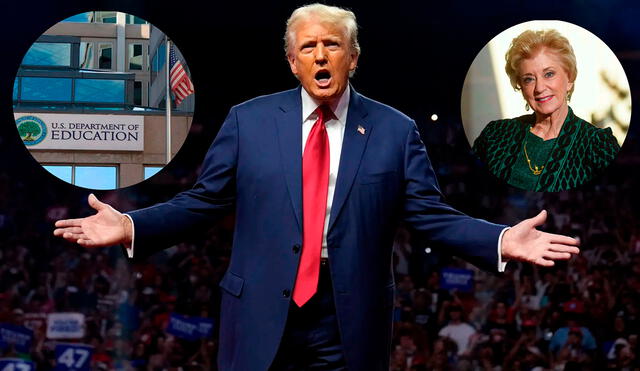Trump plans to dismantle the U.S Department of Education
As Trump pushes to dismantle the Department of Education, millions of students face uncertainty over loans, schools brace for disruption, and legal battles intensify. Will this reshape EEUU education or spark a crisis?

President Donald Trump has signed an executive order to dismantle the Department of Education, aiming to transfer educational authority to individual states. His administration argues that federal spending has not improved outcomes, justifying the move. However, congressional approval is required, posing political and legal challenges.

ALSO SEE: You may still be eligible for a $1,400 stimulus check from the IRS: here’s how to claim it
Linda McMahon to lead Education Department dismantling amid equity concerns
To implement this plan, Linda McMahon has been appointed as the Secretary of Education, responsible for overseeing the dismantling process. This includes redistributing functions and ensuring that essential services continue during the transition. The administration has emphasized the need for a decentralized education system, but specific details on how this will be executed remain unclear.
Critics, including public school advocates and civil rights organizations, warn that dismantling the Department of Education could harm vulnerable students, such as those with disabilities and from marginalized communities. They argue that the department has played a crucial role in enforcing federal laws that promote educational equity and protect civil rights in schools. The opposition sees this move as a step backward for national education standards.
Student loan uncertainty and legal battles over Education Department dismantling
The department’s elimination could also impact key programs, including the $1.6 trillion student loan program, raising concerns about financial aid for millions of students. The Trump administration claims it will redistribute the department’s functions among state agencies, but concrete plans for handling critical programs remain uncertain. Many worry that this transition could create instability in the education sector.
Meanwhile, lawsuits have been filed by Democratic attorneys general and organizations like the NAACP, arguing that the executive order is unconstitutional. These legal challenges could delay or even prevent the full implementation of the dismantling plan, depending on court rulings and the administration’s ability to secure congressional support. The outcome of this battle will shape the future of federal education policy in the E.E.U.U











